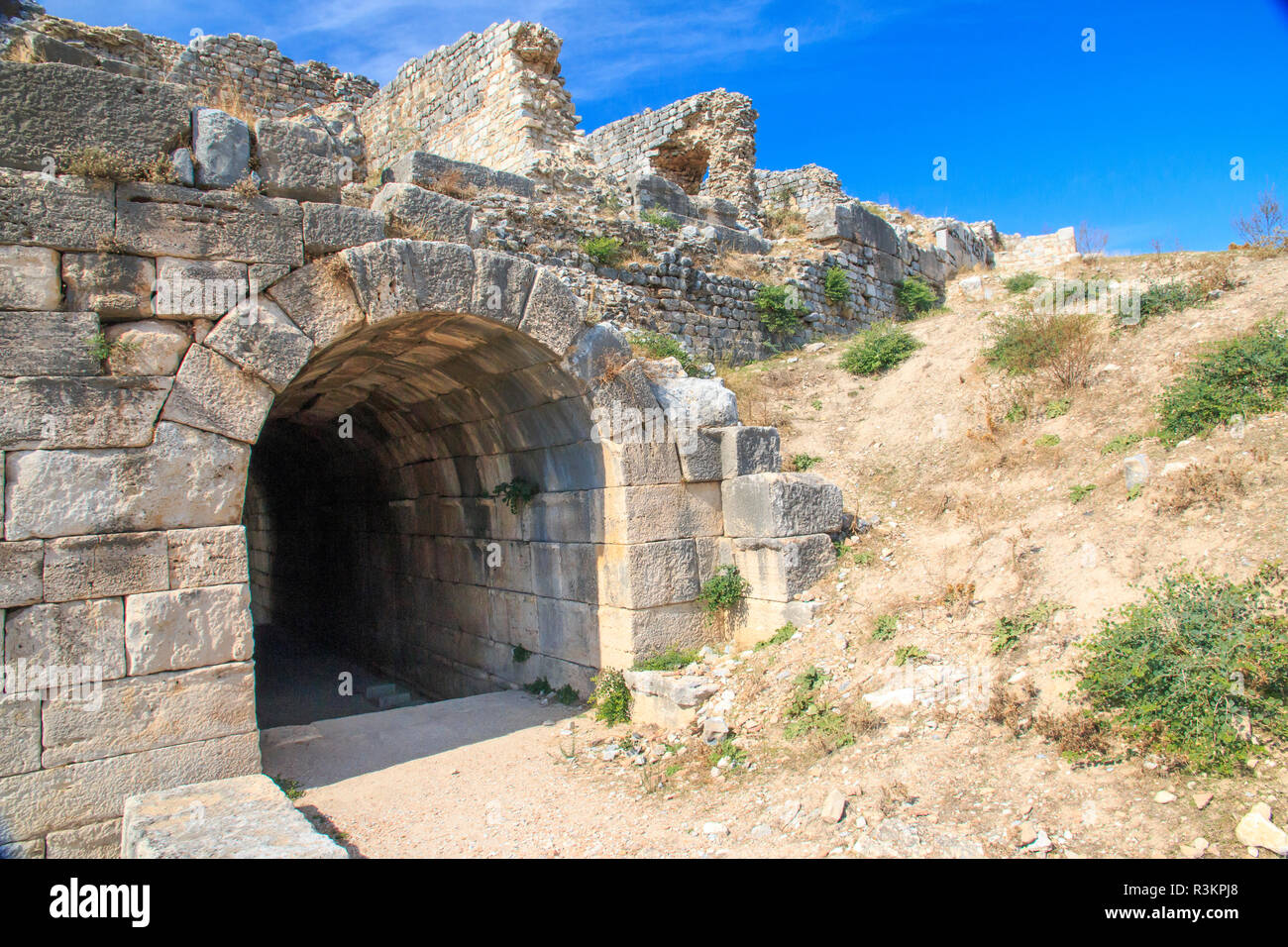
Themistocles erected a statue to himself in Magnesia. Additionally, he was assigned the revenues of three cities: Magnesia (about 50 talents per year, for bread), Myus (for fish), and Lampsacus ("for wine"). To support his family, he was made governor of Magnesia on the Maeander. In the 5th century BCE, the exiled Athenian Themistocles came to Persia to offer his services to Artaxerxes. It even became the residence of a Persian satrap (governor) in the 6th century BCE. Strabo informs that after this disaster "the Milesians took possession of the place in the following year." Subsequently, Magnesia was controlled by Ephesus and then the Persians. However, the city was destroyed by the Treres, a Cimmerian tribe, sometime between 726 BCE and 660 BCE. It later came under the control of the Lydian king Gyges who ruled from 716 to 678 BCE.

Magnesia attained great power and wealth that enabled the city to compete with Ephesus. Strabo adds that in this first location there was also "the temple of Dindymene, Mother of the gods." Dindymene was not the Greek deity but one of the names of Cybele, the Anatolian goddess worshipped by the Phrygians. Pactyes, the mountain in the territory of the Ephesians." The original site of this first settlement, now called Palaimagnesia (Old Magnesia) remains unknown. But it is much nearer the Lethaeus River, which empties into the Maeander and has its beginning in Mt. Strabo describes the location of Magnesia in the following words: "The first city one comes to after Ephesus is Magnesia, which is an Aeolian city and is called Magnesia on the Maeander, for it is situated near that river. The land around the city was extremely fertile, producing excellent wine, figs, and cucumbers. The city was founded on the banks of the small river Lethacus, a tributary of the Maeander. On the other hand, the memory of Leukophryene was remembered in the epithet of the city's chief goddess - Artemis Leucophryene - and it was believed that the heroine was buried in the sanctuary of this goddess. The legendary founder of the city, Leukippos, was depicted on the coins minted in the city together with a hump-backed ox. She was the daughter of a local king Mandrolytos and betrayed her city to the Magnesians. According to an inscription found in the agora of Magnesia on the Meander, a prophecy of Apollo that they most probably heard in Delphi, led these settlers to Leukophryene (White Eyebrows). Later, certain Leukippos took a group of colonists to Asia Minor. They spent eighty years on the island where they had also founded the city called Magnesia. The Magnetes travelled to Asia Minor through Delphi and Crete, before they finally crossed the Aegean Sea.

Because of this, Magnesia on the Meander was not accepted into the Ionian League.

Geographically, Magnesia on the Maeander was located in Ionia, but the Magnetes were of Aeolian origins. Interestingly, two Magnesias were the only important towns established inland from the Aegean coast at the time of the Hellenic migration to Anatolia at the end of the second millennium BCE. The city discussed here was later called Magnesia on the Maeander, to distinguish it from Magnesia ad Sipylum (modern Manisa). To complicate the issue, Strabo comments that "the Magnetans are thought to be descendants of Delphians who settled in the Didyman hills, in Thessaly".Īfter the Trojan War, the Magnesians founded two cities in Asia Minor, both called Magnesia. Their names became the eponyms of the Magnetes and Macedones tribes.

Hesiod explains that she had an affair with Zeus and bore him two sons: Magnes and Makednos. The name of the tribe originated in the myth about Thyia, a daughter of Deucalion. According to Homer, they took part in the Trojan War as a part of the Greek troops led by Agamemnon. According to Greek tradition, Magnesia on the Meander was founded by the colonists from the tribe of Magnetes who arrived in Asia Minor from Thessaly.


 0 kommentar(er)
0 kommentar(er)
